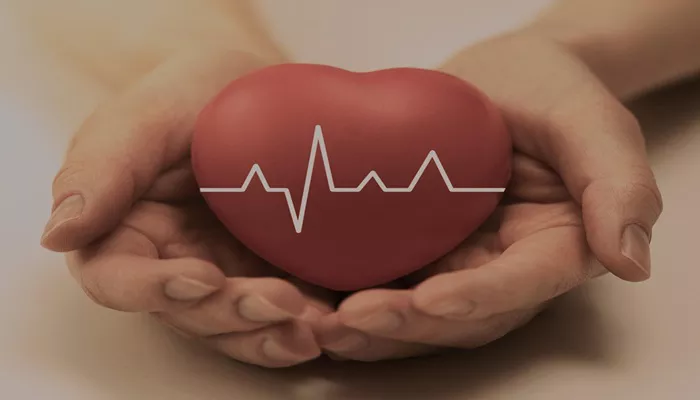Myocarditis is an inflammatory condition of the heart muscle (myocardium) that can significantly affect cardiac function. It can lead to symptoms such as chest pain, shortness of breath, fatigue, and arrhythmias. The inflammation may result from viral infections, autoimmune diseases, or exposure to certain toxins. Recovery from myocarditis can vary widely among individuals, depending on the severity of the condition and the underlying cause. This article aims to provide a comprehensive overview of strategies to speed up recovery from myocarditis, focusing on lifestyle modifications, medical management, and rehabilitation.
Causes of Myocarditis
The most common cause of myocarditis is viral infection. Various viruses can lead to this condition, including:
- Coxsackievirus
- Adenovirus
- Parvovirus B19
- Influenza virus
- COVID-19
In addition to viral infections, myocarditis can also be caused by:
Bacterial infections: Such as those caused by streptococcus or staphylococcus.
Autoimmune diseases: Conditions like systemic lupus erythematosus or rheumatoid arthritis can result in myocarditis.
Toxins: Certain medications and illegal drugs can also induce inflammation in the heart muscle.
The clinical presentation of myocarditis can vary widely. Some patients may experience mild symptoms or none at all, while others may develop severe heart failure or arrhythmias.
Diagnosis of Myocarditis
Diagnosing myocarditis can be challenging due to its variable presentation. Healthcare providers typically rely on a combination of clinical evaluation, laboratory tests, and imaging studies. Common diagnostic tools include:
Electrocardiogram (ECG): To assess heart rhythm and identify any abnormalities.
Echocardiogram: To evaluate heart function and structure.
Cardiac MRI: This imaging technique helps visualize inflammation in the heart muscle.
Endomyocardial biopsy: In some cases, a biopsy may be performed to confirm the diagnosis and identify the underlying cause.
see also: Can You Live A Normal Life with Myocarditis?
Initial Management Strategies
The initial management of myocarditis focuses on supportive care and addressing any underlying causes. Here are key strategies for speeding up recovery:
1. Rest and Activity Modification
Physical rest is crucial for patients recovering from myocarditis. Strenuous activities can exacerbate symptoms and prolong recovery. It is generally recommended that patients:
Limit physical activity: Avoid heavy lifting, competitive sports, and vigorous exercise for several months after diagnosis.
Gradually increase activity levels: Once symptoms improve and under medical guidance, patients can slowly reintroduce light physical activities.
2. Medication Management
Medications play a vital role in managing myocarditis and supporting recovery. Depending on the severity of symptoms and complications, healthcare providers may prescribe:
Diuretics: To help reduce fluid overload if heart failure symptoms are present.
ACE inhibitors or ARBs: These medications help lower blood pressure and reduce strain on the heart.
Beta-blockers: To manage heart rate and improve cardiac output.
Anti-inflammatory medications: In some cases, corticosteroids may be prescribed to reduce inflammation in the heart muscle.
Patients should adhere strictly to their medication regimen and consult their healthcare provider regarding any side effects or concerns.
Nutritional Support
Diet plays a significant role in cardiovascular health and recovery from myocarditis. A heart-healthy diet can help support healing and improve overall well-being:
1. Heart-Healthy Foods
Incorporating nutrient-rich foods into the diet can promote recovery:
Whole grains: Provide essential nutrients and fiber for overall health.
Lean proteins: Sources such as fish (especially fatty fish rich in omega-3 fatty acids), poultry, beans, and legumes support muscle repair.
2. Limit Sodium Intake
Excess sodium can contribute to fluid retention and increase blood pressure. Patients should aim to limit their sodium intake by:
Avoiding processed foods high in salt.
Reading food labels for sodium content.
Cooking with herbs and spices instead of salt for flavoring.
Lifestyle Modifications
Making specific lifestyle changes can significantly impact recovery from myocarditis:
1. Smoking Cessation
Smoking is detrimental to cardiovascular health and can worsen inflammation in the body. Quitting smoking is essential for improving heart health and promoting recovery:
Seek support through counseling or smoking cessation programs.
Consider nicotine replacement therapies if needed.
2. Alcohol Moderation
Alcohol consumption should be limited during recovery from myocarditis:
Excessive alcohol intake can strain the heart further.
Follow healthcare provider recommendations regarding alcohol consumption.
3. Stress Management
Chronic stress can negatively affect cardiovascular health.
Implementing stress-reducing techniques can aid recovery:
Practice relaxation techniques such as deep breathing exercises, yoga, or meditation.
Engage in hobbies or activities that promote relaxation and enjoyment.
Cardiac Rehabilitation
Cardiac rehabilitation is a structured program designed to support individuals recovering from heart conditions, including myocarditis.
This program typically includes:
1. Supervised Exercise Training
Once cleared by a healthcare provider, patients may benefit from supervised exercise programs tailored to their needs:
Gradual progression of physical activity helps rebuild strength without overexertion.
Monitoring during exercise ensures safety and appropriate adjustments based on individual tolerance.
2. Education on Heart Health
Cardiac rehabilitation programs often include educational components that cover topics such as:
Understanding heart disease risk factors.
Learning about nutrition and lifestyle modifications for better heart health.
Strategies for managing stress effectively.
Conclusion
Recovering from myocarditis requires a multifaceted approach that includes rest, medication management, nutritional support, lifestyle modifications, cardiac rehabilitation, and ongoing monitoring. By implementing these strategies, patients can enhance their recovery process and improve their overall cardiovascular health.
It is crucial for individuals diagnosed with myocarditis to work closely with their healthcare team throughout their recovery journey. Each patient’s experience with myocarditis is unique; therefore, personalized care plans are essential for optimal outcomes.

